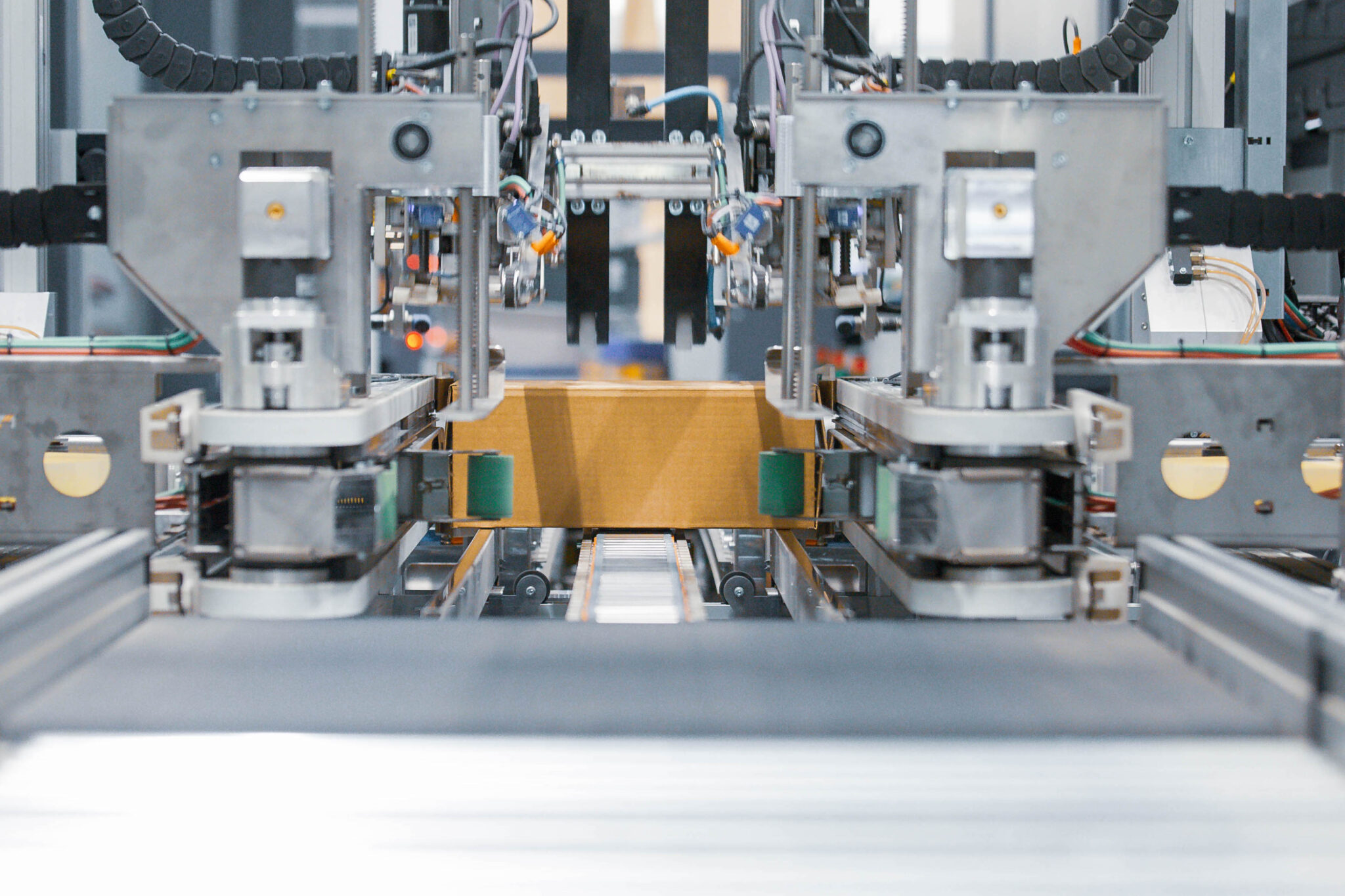Online power-tool retailer, UK Planet Tools, has invested early in ‘right-size’ packing automation to remove constraints on growth and build-in flexible capacity for peak. Starting out in 2010 as a local retailer of high-quality tools and fixings, serving customers in and around Milton Keynes, UK Planet Tools has grown rapidly to become one of the largest online suppliers to the building trade for power-tools and related products. Thousands of orders a day are shipped to customers across the UK.
As with most ecommerce businesses the speed and efficiency of the pick, pack and dispatch operation is vital, making all the difference to customer satisfaction levels and potential sales – particularly, at peak. For the managing director of UK Planet Tools, Bohdan Hrystayenko, this was an aspect of the business where he could see automation bringing significant cost savings combined with an uplift to productivity and it was the packing operation that held the greatest potential for a fast return on investment (ROI).
Labour savings
Having spoken with Sparck Technologies, Hrystayenko was aware of the major benefits, in the form of labour and materials savings, that could come from using automated ‘right-size’ boxing technology. Sparck Technologies’ CVP Impack auto-boxing system has the capability to tailor-make up to 500 boxes per hour, for multiple or single item orders, using advanced 3D scanning technology to optimally size, create and label each parcel in one seamless process – reducing package volumes by up to 50%, cutting cardboard usage by 30% and eliminating the need for void fill.
The technology was perfect for UK Planet Tool’s varied product profiles and mixed order quantities. The CVP Impack was highly flexible, capable of scanning and making boxes to the exact size needed for single item orders or multiple items, time and time again.
Why wait?
“This machine was exactly what we wanted,” says Hrystayenko. “Even though our daily throughput was only about half the capacity capable of the CVP Impack we knew we could reap enormous benefits from installing the machine now, rather than waiting. We were confident that with this machine in place we would have the operational flexibility and extra capacity to grow, without any fears over hitting peak volumes or trying to find additional labour. It was the right thing to do.”
An order for a CVP Impack was placed at the beginning of November 2024 and installed on 17th December, with ‘right-size’ packages rolling off the machine just two days later. “Space in the warehouse was tight but with some creative thinking from ourselves and Sparck we made it work. It was an incredible feat, supplying and installing the whole system in just eight weeks,” he says.
Big benefits
“The benefits for our business have been enormous,” says Hrystayenko. “With each box now custom-made to fit the exact dimensions of every order, we’ve eliminated the waste of shipping empty space. This alone has saved us 40% on consumables and material costs. Our reliance on manual labour has dropped significantly, transforming what was once a labour-intensive packing process. Like many ecommerce businesses, Mondays are our busiest days. Previously, we had to start early to clear the weekend backlog, but now we don’t begin until 8am. Thanks to the CVP Impack, just two operators can manage 250–300 packages per hour, removing the need for overtime and extra staffing.”
But for Hrystayenko, the most significant benefit from purchasing the Sparck’s CVP Impack has been the uplift in customer service, enabling a 5pm cut-off for a next-day delivery – a reliable fulfilment capability that builds customer confidence and wins new business. “The Trustpilot reviews have been glowing green ever since,” says Hrystayenko. “In fact, I calculate that had we installed the CVP Impack before the autumn peak we could have done 1.5x the business we did. This machine has given us the opportunity to grow the business. There’s no stopping us now.”
similar news











